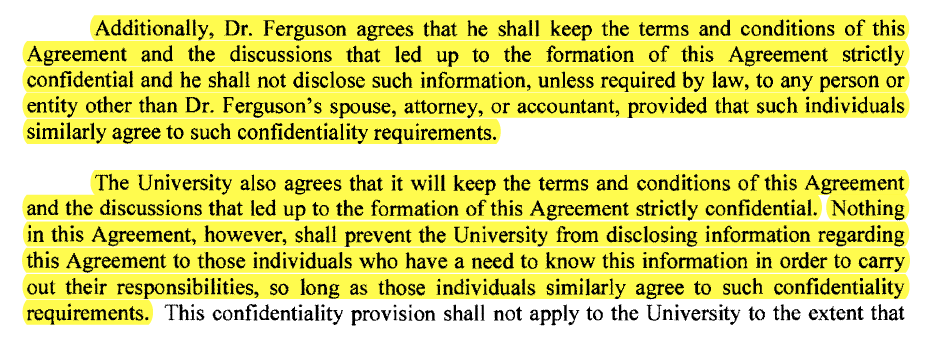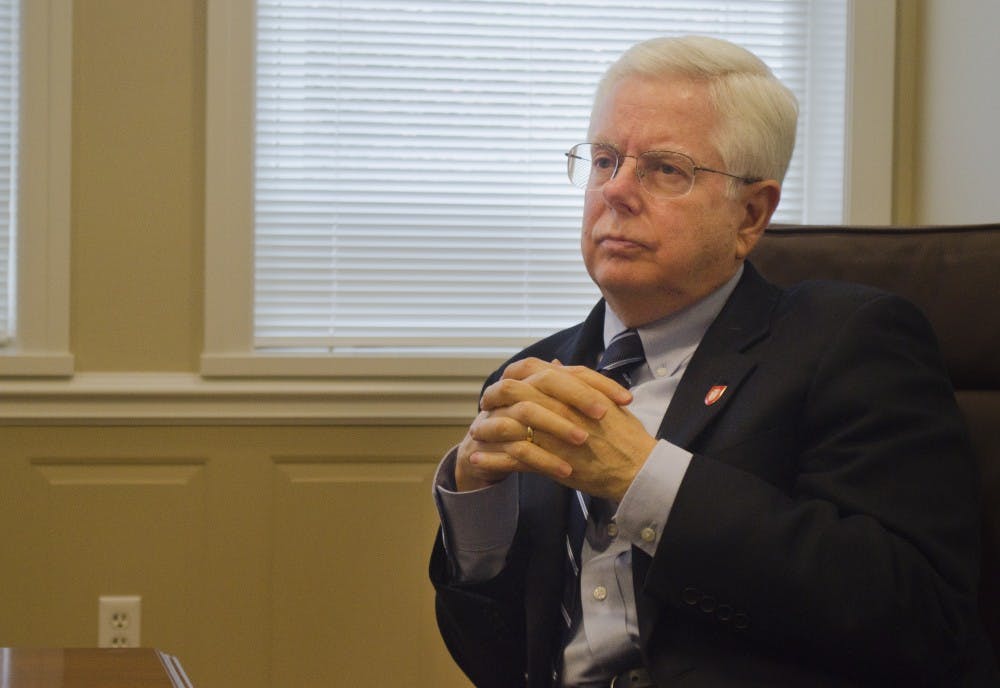President Paul W. Ferguson could make more than half a million dollars even after his resignation, according to his severance agreement released today.
While the big question of "Why?" about Ferguson's resignation has not been answered by the university, the severance agreement cleared up some other questions.
How much money is he getting? During his two-month leave, Ferguson will be paid two months of his $450,000 yearly salary — about $75,000, paid out on normally scheduled paydays. He won't be actively working as the president of the university during this time, and is not authorized to act on behalf of the university. Provost Terry King will be taking over as acting president.
The university will also pay Ferguson for his unused vacation days — $21,635 — and any other wages earned through March 25.
As long as he doesn't revoke his agreement, Ferguson will also receive a $450,000 severance payment, as well as around $15,000 worth of premiums for a year of health insurance, to be paid out over the course of 12 months. However, the contract also details Ferguson's "duty to mitigate," saying that he must make "reasonable and diligent" efforts to gain a senior employment position in higher education or other employment in line with his expertise. If Ferguson gets hired somewhere else, the severance payment will be reduced.
If Ferguson does not get another position in the next twelve months, he will be paid a total of about $561,400.
See the rest of our Ferguson resignation coverage here.
What can they say? Ferguson and the board agree not to criticize each other, or as the agreement says, neither party can “make or publish any derogatory, disparaging, false or damaging written or oral statements or remarks ... "
Ferguson also can’t make a statement regarding the reason for his resignation that is inconsistent with the university’s public statement.
When asked on Jan. 26 about whether Ferguson left on good terms or not, Trustee Tom Bracken said he was "not at liberty to go into details."
Part of the terms of the contract, perhaps, is the reason why Bracken can't say anything on the terms Ferguson left on.
Furthermore, both parties have signed on to remain confidential. They can't reveal the conditions or discussions that led up to the severance agreement. We may never know why Ferguson resigned.

Christopher Pearcy, a lawyer at Hume Smith Geddes Green & Simmons LLP in Indianapolis, said the agreement not to speak about the agreement is fairly standard practice.
When does he officially resign? His two-month sabbatical began Jan. 25, and his resignation will be effective at 5 p.m. on March 25, according to the agreement.
When does he have to move out of Bracken House? Ferguson has to vacate the premises of Bracken House — the university-owned house all presidents are required to live in — by Feb. 25.
Why did he resign? While the agreement document clears up some of the details of Ferguson's resignation, it's silent on the reason why he left after only 18 months in office.
Will anyone sue? According to the severance agreement the contract is a “mutual release” from Ferguson’s previous work agreement. As part of that, both sides agree not to sue each other.
See a full copy of the agreement here.
This story was updated on Jan. 27 after it was published on Jan. 26.





